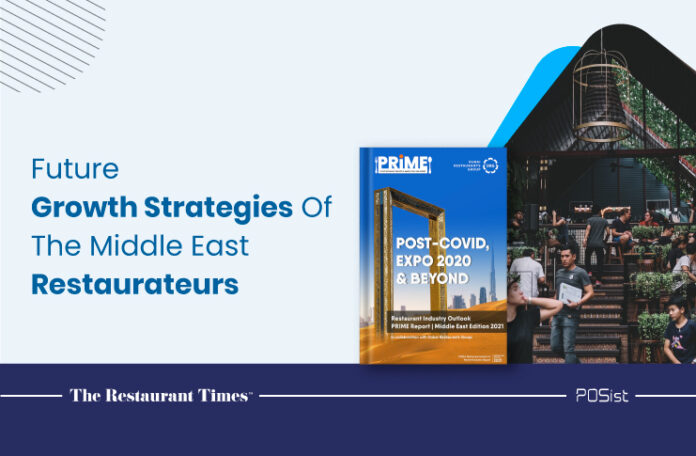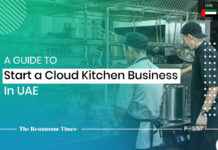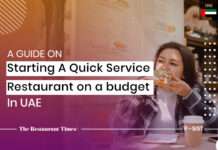The slowdown in the F&B sector due to the pandemic has compelled restaurant operators to think about better ways to sustain and grow their businesses in the future. Diversifying services with the aid of technology has been one of the major growth strategies that the Middle East restaurants have been adopting in the past one year. Introducing online ordering systems, efficient menu engineering, and controlling food costs have further helped restaurants to boost their sales amidst the pandemic.
6 Growth Tactics Adopted By Middle East Restaurants
Here are the major strategies the Middle-East restaurant operators are adopting to grow their business.
1. Offering Deliveries Through Cloud Kitchens
Even though the concept of cloud kitchens was prominent in the pre-pandemic times too, demand has picked up significantly after COVID-19. Since the customers were shifting towards ordering food online in order to not expose themselves to the virus, restaurant operators expanded delivery services via cloud kitchens. As per the PRIME report, 65 percent of the restaurant operators were preparing to offer delivery services through cloud kitchens. Even in the upcoming events like Expo 2020 and Fifa World Cup Qatar, cloud kitchens and takeaway services are expected to constitute a good number of sales for the F&B sector.
2. Launching Online Ordering Platforms
Leveraging online ordering platforms is another growth area for Middle East restaurant operators. In order to avoid the high commission charged by the third-party food aggregators, they have been eyeing in-house alternatives that cost less, offer greater operational control and are equally efficient. Not only are the online ordering systems mobile friendly for customers, they also gather customer data and customer feedback that can be used for personalized marketing campaigns while bridging the gaps in the restaurant operations respectively.
3. Introducing Customer Loyalty Programs
The pandemic has underscored the importance of customer experience for restaurant operators. According to the PRIME report, 55 percent of the operators stated that enhancing customer experience was the top priority and 32 percent of them were introducing new customer loyalty programs to grow their business. They believe that gaining new customers and retaining existing ones was the key to a sustainable business in tough times. Incentivizing customers with complimentary items, adopting point and tier based loyalty programs, referral programs and sometimes waiving off the delivery fees are some of the tactics they have been mulling over to keep customers happy.

4. Exploring New Locations
Having a perfect location is critical for the success of a restaurant business. If the location is a reason for a decline in sales, there is no point sticking to it. Amidst the pandemic, high rentals have been one of the major concerns of the restaurateurs. While some Middle East restaurant operators are renegotiating the terms of their rental agreements, 40 percent of them are looking forward to exploring new locations that are cheaper and more lucrative.
5. Introducing Tech To Operations
Technology offers a solution to almost any problem faced by the troubled restaurant industry today. By taking operations online and making ordering and payments contactless, restaurant operators are trying their best to minimize the hassles customers go through just to order food. They have been working on building efficient online ordering platforms to facilitate a seamless customer experience. Deployment of efficient POS systems has simplified bill reconciliation to a great extent.
6. Introducing Hybrid Models
Hybrid model is a new concept adopted by the Middle East restaurant operators post pandemic. The concept caters to dine-in customers as well as the ones sitting at their homes. Following the online food delivery trend, restaurants have started delivery services from their existing kitchens, using their resources to the full potential. This is expected to boost their growth as what could be better than a kitchen running both dine-in and delivery services. As Ian Toal, the CEO of Al-Faisaliah Group (JSC) – Alfa Co. Restaurant and Food Division says,
For me, the perfect model is a hybrid. It’s not just a pure cloud kitchen for me. The ideal model is a food hub with a kitchen on the back and another in the long-run delivery brands. That, for me, is my vision of what is remarkable for this digital delivery space in the future. I think we are yet to see it fully evolve.
The different growth strategies adopted by the Middle East restaurants are presently seen just as a solution for survival. However, technological advancements will keep bringing novel ways to make restaurant operations easier and more streamlined for enhancing customer experience. These solutions are poised to be increasingly adopted by restaurant operators worldwide for a promising future.
Stay tuned for further insights on our Middle East PRIME report! Download it to know more about the GCC F&B industry.


















